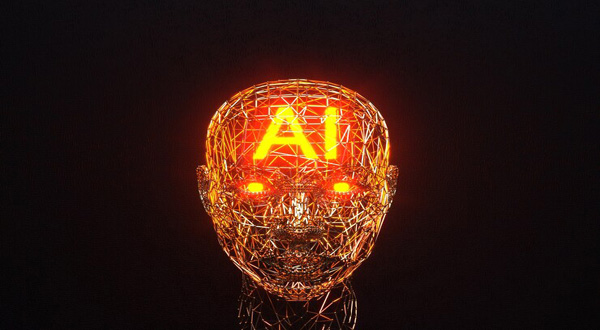Artificial Intelligence Course Eligibility: A Guide for Everyone
- Update Time : Friday, March 15, 2024
- 26 Time View

Artificial Intelligence Course Eligibility: A Guide for Everyone: Are you fascinated by artificial intelligence (AI) and considering diving into the world of AI courses? If so, you might be wondering about the eligibility criteria. Well, you’re in the right place! In this comprehensive guide, we’ll walk you through everything you need to know about who can pursue an AI course and what it entails. From educational backgrounds to necessary skills, we’ll cover it all. So, let’s get started!
Table of Contents
| Sr | Headings |
| 1. | What is Artificial Intelligence? |
| 2. | Why Pursue an AI Course? |
| 3. | Educational Backgrounds for AI Courses |
| 4. | Necessary Skills for AI Studies |
| 5. | Eligibility Criteria for AI Courses |
| 6. | Age Limitations and Exceptions |
| 7. | Available AI Course Formats |
| 8. | Preparing for an AI Course: Tips and Advice |
| 9. | Career Opportunities After Completing an AI Course |
| 10. | Conclusion |
| 11. | FAQs |
What is Artificial Intelligence?
Artificial intelligence, often abbreviated as AI, is a branch of computer science dedicated to creating intelligent machines that can mimic human behavior. These machines are programmed to perform tasks that typically require human intelligence, such as problem-solving, learning, and decision-making.
Why Pursue an AI Course?
The field of AI is rapidly expanding, with applications ranging from virtual assistants like Siri and Alexa to self-driving cars and advanced medical diagnostics. Pursuing an AI course can open doors to exciting career opportunities in various industries, including technology, healthcare, finance, and more.
Educational Backgrounds for AI Courses
Contrary to popular belief, you don’t necessarily need a computer science degree to enroll in an AI course. While a background in computer science or mathematics can be beneficial, many AI courses are designed to accommodate learners from diverse educational backgrounds, including engineering, physics, biology, and even the humanities.
Read More: Mastering Artificial Intelligence: Your Path to Success in Melbourne
Necessary Skills for AI Studies
While specific skills may vary depending on the course and institution, some essential skills for AI studies include proficiency in programming languages like Python, a solid understanding of mathematics and statistics, critical thinking, problem-solving abilities, and a knack for creativity and innovation.
Eligibility Criteria for AI Courses
Most AI courses require a minimum educational qualification, typically a bachelor’s degree or equivalent in a relevant field. Some advanced courses may have additional prerequisites, such as prior experience in programming or mathematics. However, don’t let this deter you—if you’re passionate about AI and willing to learn, there’s likely a course out there for you.
Age Limitations and Exceptions
Unlike traditional educational programs, many AI courses have no age limitations. Whether you’re a recent high school graduate, a mid-career professional looking to switch fields, or a retiree exploring new interests, you’re welcome to pursue an AI course as long as you meet the eligibility criteria and have the necessary dedication and commitment.
Read More: Unlocking the World of Machine Learning: Find the Best Courses Near You
Available AI Course Formats
AI courses are available in various formats to suit different learning preferences and schedules. These include traditional classroom-based courses, online courses, part-time and full-time programs, workshops, boot camps, and even self-paced tutorials and resources. Choose the format that best fits your lifestyle and learning style.
Preparing for an AI Course: Tips and Advice
Before embarking on your AI journey, it’s essential to prepare adequately. Familiarize yourself with foundational concepts in AI, such as machine learning, neural networks, and natural language processing. Brush up on your programming skills, particularly in Python, and consider taking online tutorials or courses to supplement your knowledge.
Career Opportunities After Completing an AI Course
Completing an AI course opens up a world of exciting career opportunities. Graduates can pursue roles such as data scientist, machine learning engineer, AI researcher, software developer, robotics engineer, and more. The demand for AI professionals is on the rise, with lucrative salaries and the chance to work on cutting-edge technologies.
Conclusion
In conclusion, the eligibility criteria for artificial intelligence courses are more inclusive than you might think. Regardless of your educational background or age, there’s likely an AI course out there for you. By acquiring the necessary skills and dedication, you can embark on a rewarding journey into the world of AI and unlock limitless career opportunities.
FAQs
- Can I pursue an AI course without a background in computer science?
Yes, many AI courses accommodate learners from diverse educational backgrounds, including engineering, mathematics, biology, and more.
- Are there age limitations for enrolling in AI courses?
No, most AI courses have no age limitations. Whether you’re a recent graduate or a mid-career professional, you’re welcome to pursue an AI course as long as you meet the eligibility criteria.
- What programming languages are essential for AI studies?
Python is the most commonly used programming language in AI due to its simplicity and versatility. Familiarity with Python is highly recommended for aspiring AI professionals.
- What career opportunities are available after completing an AI course?
Graduates of AI courses can pursue various career paths, including roles such as data scientist, machine learning engineer, AI researcher, software developer, and robotics engineer, among others.
- How can I prepare for an AI course?
To prepare for an AI course, familiarize yourself with foundational AI concepts, such as machine learning and neural networks, and brush up on your programming skills, particularly in Python. Consider taking online tutorials or courses to supplement your knowledge and skills.











